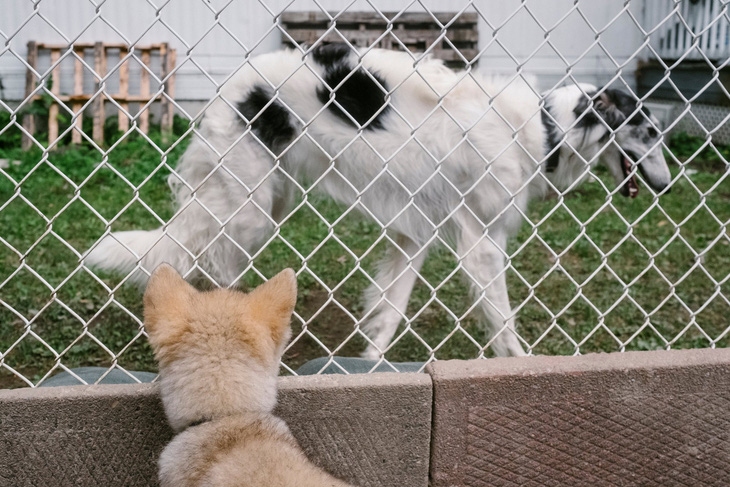TTO – Have you ever wondered why wolves can be domesticated into domestic dogs? What special characteristics are there between these two animals?

Research on the correlation and differences between wolves and domestic dogs is still being carried out by scientists – Photo: Renaud Philippe
James Gorman is sitting in an outdoor iron cage with four small animals. They were sucking his hands, biting his hat and hair and cooing at him as if showing joy.
They are 8 weeks old, about 60cm long, and weigh about 3.5kg. Sometimes they growl and lick James’ face like friends who haven’t seen each other for a long time.
At first you will imagine in your mind that they are puppies, but in fact these are wolves. When mature, they can weigh up to 45kg, and their teeth are hard enough to bite deer bones.
Same ancestors, many differences
These wolves are raised in cages from before their eyes open so farmers can easily approach them and do experiments. However, they still have to be careful because of their hidden hunting instinct.
For example, if they are sick or injured, they will avoid entering the cage to limit possible predator reactions. Or no one can force wolves to play chase like domestic dogs.
Although they have the same ancestor, wolves and domestic dogs still have many differences. In terms of body, wolves’ teeth are harder. In addition, wolves breed only once a year, while domestic dogs breed twice.
As for behavior, wolf trainers say that even though they are raised equally, the hunting instinct is more easily emitted in wolves, according to BBC. Many other studies show that wolves take more care of their young, and they are less close to humans than domestic dogs.
The only large domesticated carnivore
 Wolves are playing with each other – Photo: Renaud Philippe
Wolves are playing with each other – Photo: Renaud PhilippeWolves are highly socially aware species. They live in tight herds, raise their young together and hunt together. This trait is not seen in modern dogs, although theories suggest that domestication has made the animals more gentle and cuddly.
To test the ability of the two species to cooperate, scientists performed a basic behavioral experiment, called the rope pull challenge. In it, each pair of dogs in turn was assigned the task of pulling a rope together to pull the food tray closer to them with a reward of a piece of fresh meat.
As a result, domestic dogs were only successful 2 times out of 472 attempts. Meanwhile, the wolf succeeded 100 times in 416 attempts.
“Wolves cooperate significantly with each other and show close social bonds, whereas most domestic dogs do not work together, possibly because they do not want to conflict with each other,” said Dr. Marshall-Pescini from University of Veterinary Medicine in Vienna, Austria – who conducted the research, said.
Dr. Krishna Veeramah from Stony Brook University in New York, USA, said wolves are the only large carnivores that have been domesticated.
“It is possible that the social characteristics of wolves were key to the domestication process, and the above studies help reveal a more comprehensive picture of this process,” Mr. Krishna explained.
Domesticated 15,000 years ago
Most scientists believe that domestic dogs were domesticated from wolves more than 15,000 years ago. However, domestication here is not about catching a wolf out of its den and bringing it home.
In the past, wolves and humans often competed with each other for food, however, gradually some wolves tended to find and eat the leftover food left by hunters.
Gradually, these animals become less afraid of people, connect more closely with people, and at the same time they also eat more and give birth to more children, and these children carry a type of DNA that determines friendliness compared to other animals. wolf. Thus, the first domestic dogs were born.
Over time, humans domesticated these puppies and through many generations of crossbreeding, wolves evolved into domestic dogs.
